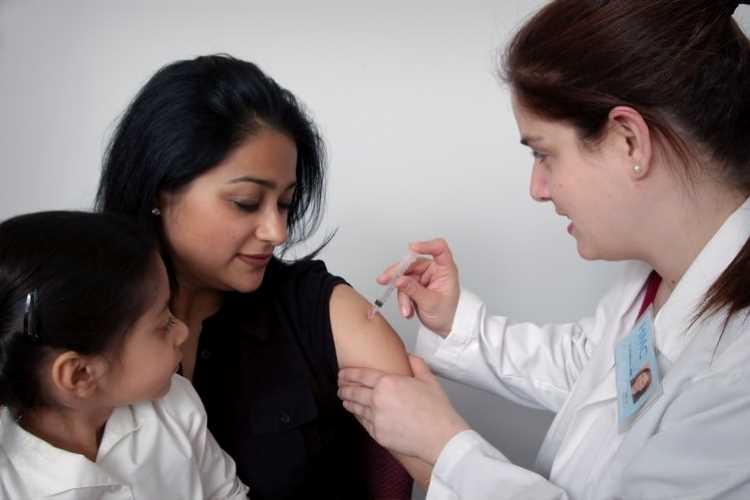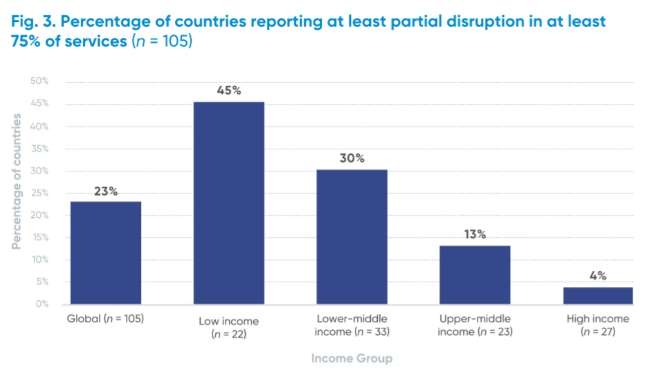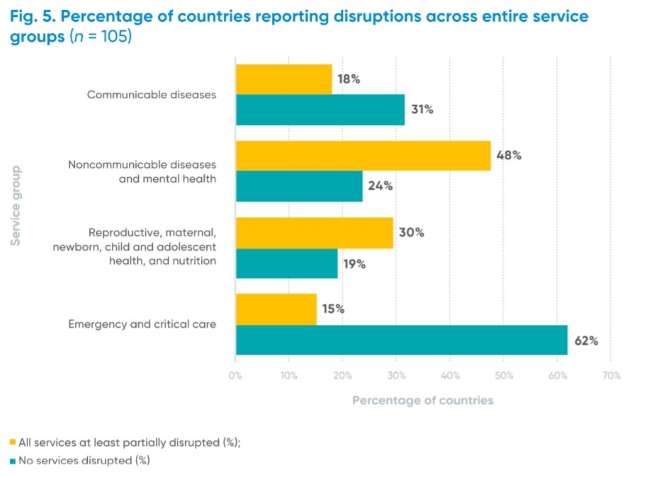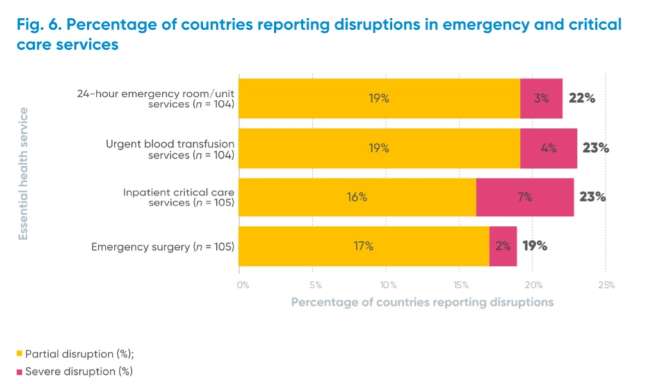
Most nations (90%) experienced disruption in health services after the Covid-19 outbreak, with low- and middle-income countries facing the toughest challenge, says a survey conducted by the World Health Organisation. The first indicative survey by the WHO analysed data collected from five regions between March and June this year in its attempt to roll out learning and monitoring tools to improve healthcare services during the pandemic.
A majority of the 105 countries surveyed had to suspend many routine and elective services, while critical care such as cancer screening and HIV treatment was interrupted in low-income countries.

READ I Developing countries stare at the prospect of lost decade
Healthcare services were affected across the board: Most countries faced disruptions in half of the 25 tracer services. The most affected areas included immunisation–outreach services (70%), facility-based services (61%), diagnosis and treatment of non-communicable diseases(69%), family planning and contraception (68%), treatment for mental disorders (61%), and cancer diagnosis and treatment (55%).
“The survey shines a light on the cracks in our health systems, but it also serves to inform new strategies to improve healthcare provision during the pandemic and beyond,” said WHO director-general Tedros Adhanom Ghebreyesus. He said all countries should see the pandemic as a lesson that health is not an ‘either-or’ equation.

READ I Carbon emissions and economic growth: Learnings for the Indian economy
Areas such as malaria diagnosis and treatment (46%), tuberculosis detection and treatment (42%) and antiretroviral treatment (32%). While some healthcare areas such as dental care was suspended due to government protocols, disruption in some services could have harmful effects in the short-, medium-, and long-term.
The pandemic affected life-saving emergency services in about a quarter of surveyed countries. Round the clock emergency room services were hit in 22% countries, blood transfusions were disrupted in 23%, while emergency surgery was affected in 19% nations.

READ I The five futures that the New Education Policy promises
More than three quarters of the surveyed countries (76%) reported cuts in outpatient care attendance due to lower demand and financial problems. Suspension of elective services was observed in (66%) countries. The survey also reported unavailability of services due to staff redeployment to provide COVID support, closings, and interruptions in supply of health products and medical equipment.
